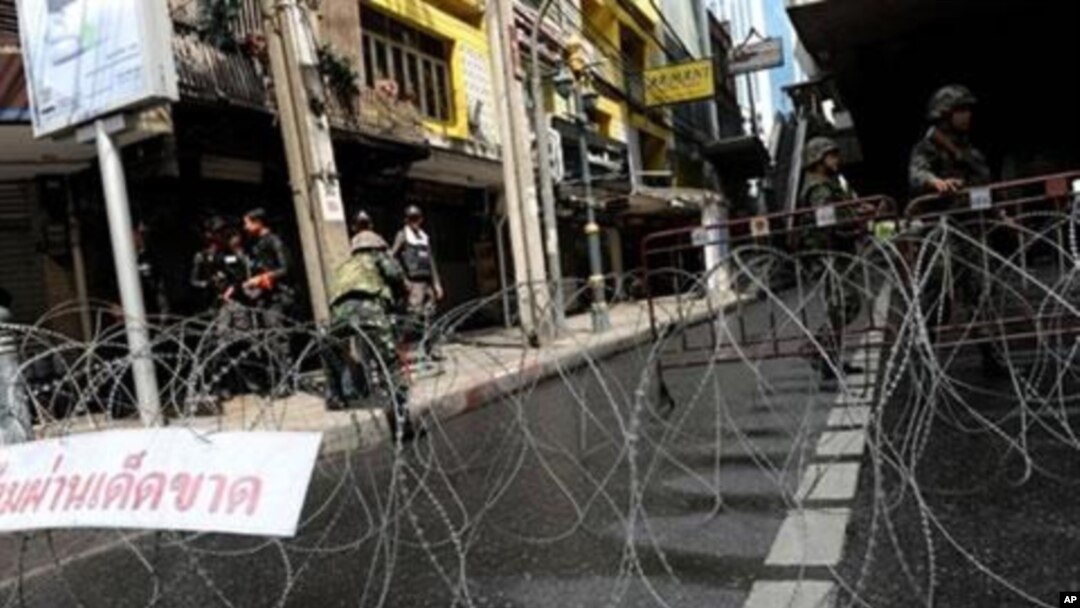The Thai government has extended a state of emergency in 19 provinces, including the capital Bangkok, for three months because of fears of renewed violence. The decision to extend the three month state of emergency came at the government's weekly cabinet meeting.
The emergency decree was revoked in five other provinces, after a three-month deadline expired.
Earlier, the Thai army had recommended an extension for an additional three months over 24 provinces set in early April at the peak of anti-government protests.
The law was imposed during mass demonstrations earlier this year in which 90 people were killed and more than 1,400 wounded. The protests were led by the so-called "Red Shirts" - supporters of former Prime Minister Thaksin Shinawatra, who remains in exile in the face of a two year jail sentence for corruption.
Thai government spokesman Panitan Wattayanagorn says while the security situation has improved concerns remain about threats in the capital, Bangkok.
"There are still attempts to cause certain trouble or activities including sabotage. There are attempts to use certain media to push people to confront one another. Also attempts to the society in terms of causing widespread violence in certain ways," the spokesman said. "That is why the usage of the emergency decree is still needed in certain areas."
The decree was initially enforced on April 7, three weeks after anti-government protesters began calling for early elections. But tensions had mounted in early April after "Red Shirt" hardliners invaded the election commission and national parliament. Deadly clashes between security forces and demonstrators on April 10 left several people dead or injured.
After a government proposed reconciliation deal failed in early May, the situation escalated. The military moved to end the protests, triggering fresh clashes.
Chris Baker, an author and researcher on Thai politics and history, says it is unclear why the government needs to maintain the decree.
"The government hasn't given any explicit reasons why they are doing this. There's clearly at the moment a number of rather small incidents that have come out - failed bombings and little things going off - but they hardly seem to add up to an argument for keeping the rather heavy state of the emergency law in operation," Baker said.
He also said he expects some foreign countries may quietly lobby Thailand in the months ahead to lift the decree, which still covers about a third of the country.
Thai business and tourism industry groups have also been calling for the decree to be lifted, saying it was adversely affecting foreign investors. Several countries still maintain travel warnings to Thailand.
The Brussels-based International Crisis Group called for the unconditional and immediate lifting of the state of emergency. The ICG said ending the three month decree was a key gesture if Thailand was to begin a process of reconciliation. The decree prohibits political gatherings as well as curtailing media operations and freezing of bank accounts of key anti-government leaders and supporters.
Since then the government has cracked down on the anti-government movement by arresting high profile "Red Shirt" leaders and supporters. Human rights groups say a large number of protesters have been detained although actual figures cannot be verified.
The Thai government has announced the setting up of several commissions to investigate the bloodshed and necessary reforms to resolve the deep political issues. The commissions are due to complete their reports later this year.


